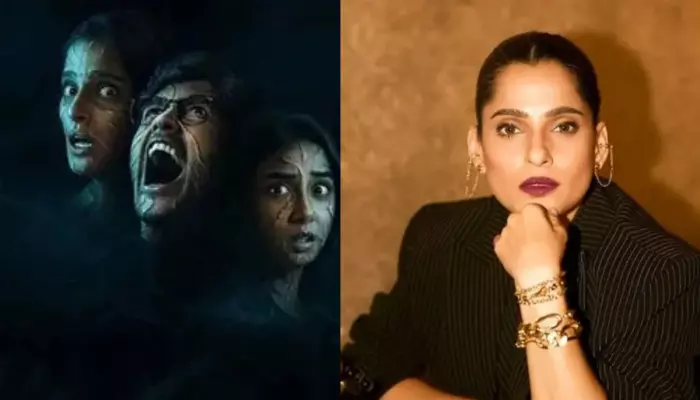About Us
Advertise With Us
RSS Feed | Content Syndication
Terms & Conditions
Privacy Policy
Contact Us
BollywoodShaadis.com © 2026, Red Hot Web Gems (I) Pvt Ltd, All Rights Reserved.

Priya Bapat is an actress well-known for her work in Marathi films, and she reached national fame with her role as 'Poornima Gaikwad' in City of Dreams. Now she has entered the horror genre with her latest project, Andhera. In this series, she played the role of Inspector' Kalpana Kadam', a police officer battling both guilt and supernatural forces. Horror is a tough genre with a demanding audience, but Priya's strong performance has impressed viewers and shown her range as one of the most versatile actors in streaming today.
In an exclusive conversation with News18 Showsha, Priya Bapat reflected on her role in Andhera. Unlike the usual heroic, unflinching police officers that dominate the Indian film industry, 'Kalpana Kadam' is a deeply vulnerable character. Priya Bapat insists that she approached 'Kalpana' from her emotional core rather than her badge. For the actor, 'Kalpana's' identity is shaped by regrets, humanity, and the personal stakes of her investigation.

'Kalpana' is haunted by the unresolved murder of a friend and takes on the case with a desperation for seeking redemption. In a male-dominated force, she carries both the burden of proving herself and the weight of her vulnerabilities, making her portrayal refreshingly real and heart touching. Priya could be quoted as saying:
"Being a cop is Kalpana's job, but her identity is shaped by her fears, regrets, and her humanity. Even in real life, our profession doesn't erase our vulnerabilities. With Kalpana, I focused on the weight she carries as a person. She takes up this case not just out of duty, but because of a lingering regret—that her friend never got justice."

Priya revealed that one of the most challenging aspects of the role was unlearning the polished performance habits she had learned over the years. She consciously worked on 'Kalpana's' language and body rhythm to ground her in authenticity. Unlike 'Poornima Gaikwad' with her refined diction in City of Dreams, 'Kalpana's' speech carried the earthy texture of her small-town roots.

Similarly, 'Kalpana's' physicality was crafted to be instinctive rather than choreographed by Priya. It was raw, messy, and driven by survival, not by cinematic heroism. These deliberate moves helped the actor establish 'Kalpana' as a living, breathing human rather than a character sketch. She could be quoted as saying:
Continue reading below
"Poornima Gaikwad's Hindi is very different from Kalpana Kadam's. Poornima came from a powerful political family in Mumbai, so her Hindi had to be polished, articulate, almost statesmanlike. She spoke like a politician—measured, clean, full of words you don't normally hear in everyday conversation. Kalpana, on the other hand, is from Satara—a small town in Maharashtra. Even though she has been living in Mumbai for a while, her Hindi carries a different rhythm. It's less refined, less "Bombay-polished," and more grounded."

Andhera may belong to the horror-thriller genre, but what makes it resonate to the audience is its layered commentary on youth anxieties, trauma, and mental health. For Priya, the show's power lies in its use of fear as a metaphor. In a world overwhelmed by information, social comparison, and isolation, Andhera reflects on the real darkness people wrestle with every day.

Much of Andhera was shot in unsettling real locations, including abandoned hospitals, which lent the production a naturally eerie atmosphere. Priya explained, horror sequences often involved mechanical blocking, counting steps, and waiting for cues. Still, it was the art department's attention to detail that created backdrops that invoked genuine unease for the audience. In moments like reacting to supernatural forces which were made later with VFX, Priya relied on her instincts and the director's vision.

While Priya continues to champion and work for the Marathi cinema, she is keen to avoid being typecasted. Her upcoming projects include two Marathi films and a yet-to-be-announced OTT show. As she continues to grow, her goal remains clear: to be seen not just as a regional face but as an actor defined by her work. With Andhera, she has once again proven her ability to reinvent herself, and fans can't wait to see more of her.

What are your thoughts about Priya Bapat and her role in Andhera?
Also Read: 'Mirai' Trailer Review, Teja Sajja's Superhero Saga Blends Visual Spectacle With Indian Mythology
